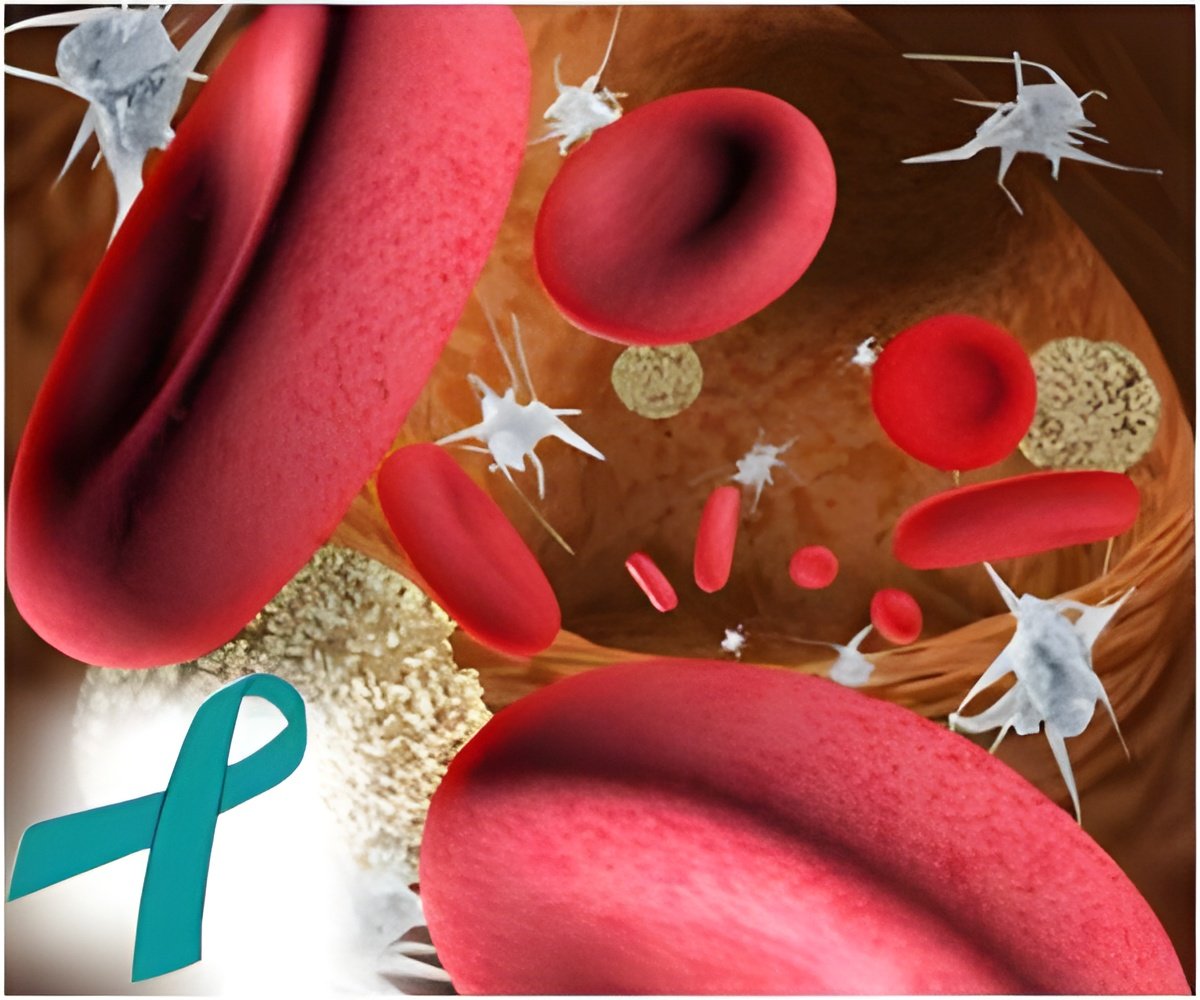
Scientists at Weill Cornell Medical College have now solved this mystery by showing that metastatic incompetent cancers actually poison the "soil" by generating a microenvironment that blocks cancer cells from settling and growing in distant organs. Researchers also found that two key proteins involved in this process work by dramatically suppressing cancer's spread.
The study, reported in the April 30 issue of Cancer Discovery, offers hope that a drug based on these potentially therapeutic two proteins, Thrombospondin 1 (Tsp-1)- the poison produced by the microenvironment under the influence of tumor secreted protein prosaposin, might help keep human cancer at bay and from metastasizing.
"The majority of cancer-related deaths are due to metastasis, yet there are no approved targeted drugs that have shown significant benefit specifically in treating that spread. We may now finally have a lead on a strategy that could offer us that option for developing and guiding specific anti-metastatic therapeutic strategies in the clinic," says the study's senior investigator, Dr. Vivek Mittal, an associate professor of cell and developmental biology in cardiothoracic surgery and director of the Neuberger Berman Foundation Lung Cancer Laboratory at Weill Cornell Medical College.
"We have work to do on exploiting these novel insights into fruitful clinical translation, but our findings are, so far, very exciting," says Dr. Mittal.
Researchers from Children's Hospital in Boston, Harvard Medical School and the University of Bergen, Norway, contributed to this study.
Advertisement
Scientists have known that all primary tumors do not metastasize, but no one knew what prevented cancer's spread in these "metastasis incompetent" tumors. This new study was conducted to uncover that very mechanism.
Advertisement
Scientists don't understand why some tumors wouldn't "want" to spread. It goes against their "job description," says Dr. Mittal. He theorizes that metastasis occurs when the barriers that the body throws up to protect itself against cancer fail. But there are some tumors in which some of the barriers may still be intact. "So that suggests those primary tumors will continue to grow, but that an innate protective barrier still exists that prevents them from spreading and invading other organs," says Dr. Mittal.
What the researchers found is that, like typical tumors, metastasis incompetent tumors also send out signaling molecules that establish what is known as the "pre-metastatic niche" in distant organs. These niches comprised of bone marrow cells and various growth factors have been described previously by others including Dr. Mittal as the fertile "soil" that the disseminated cancer cell "seeds" grow in.
Weill Cornell's Dr. Raúl Catena, a postdoctoral fellow in Mittal's laboratory and lead author of the Cancer Discovery study, found an important difference between the tumor types. Metastatic-incompetent tumors systemically increased expression of Tsp-1, a molecule known to fight cancer growth. Importantly, increased Tsp-1 production was found specifically in the bone marrow myeloid cells that comprise the metastatic niche. These results were striking, because for the first time the bone marrow-derived myeloid cells were implicated as the main producers of Tsp-1, says Dr. Mittal.
In addition, Weill Cornell and Harvard researchers found that prosaposin secreted predominantly by the metastatic incompetent tumors, via the blood circulation increased expression of Tsp-1 in the premetastatic lungs. Thus, prosaposin works in combination with Tsp-1 to convert pro-metastatic bone marrow myeloid cells in the niche into cells that are not hospitable to cancer cells that spread from a primary tumor. "The very same myeloid cells in the niche that we know can promote metastasis can also be induced under the command of the metastatic incompetent primary tumor to inhibit metastasis," Dr. Mittal says.
The research team found that the Tsp-1-inducing activity of prosaposin was contained in only a 5-amino acid peptide region of the protein. This peptide alone induced Tsp-1 in the bone marrow cells and effectively suppressed metastatic spread in the lungs in mouse models of breast and prostate cancer. This 5-amino acid peptide with Tsp-1–inducing activity has the potential to be directly used as a simple and safe therapeutic agent against metastatic cancer. The scientists have begun to test prosaposin in other tumor types or metastatic sites.
"The study's findings have clinical implications," Dr. Mittal says. "Not only is it theoretically possible to design a psosaposin-based drug or drugs that induce Tsp-1 to block cancer spread, but you could potentially create non-invasive prognostic tests to predict whether a cancer will metastasize."
According to researchers, quantifying prosaposin and Tsp-1 in a cancer patient's blood might provide predictions about their tumor's metastatic potential.
"These findings may represent several unique breakthroughs. The study provides a tangible strategy to prevent cancer spread, and this strategy would also be the first to target the microenvironment of the organs the cancer spreads to," Dr. Mittal says.
"Why a tumor would block its ability to invade and spread is puzzling," says Dr. Mittal. "But it is now up to us to exploit clues nature has provided for us to benefit our cancer patients."
Source-Eurekalert













